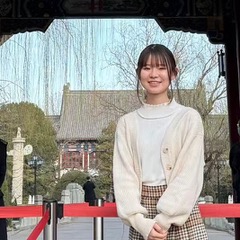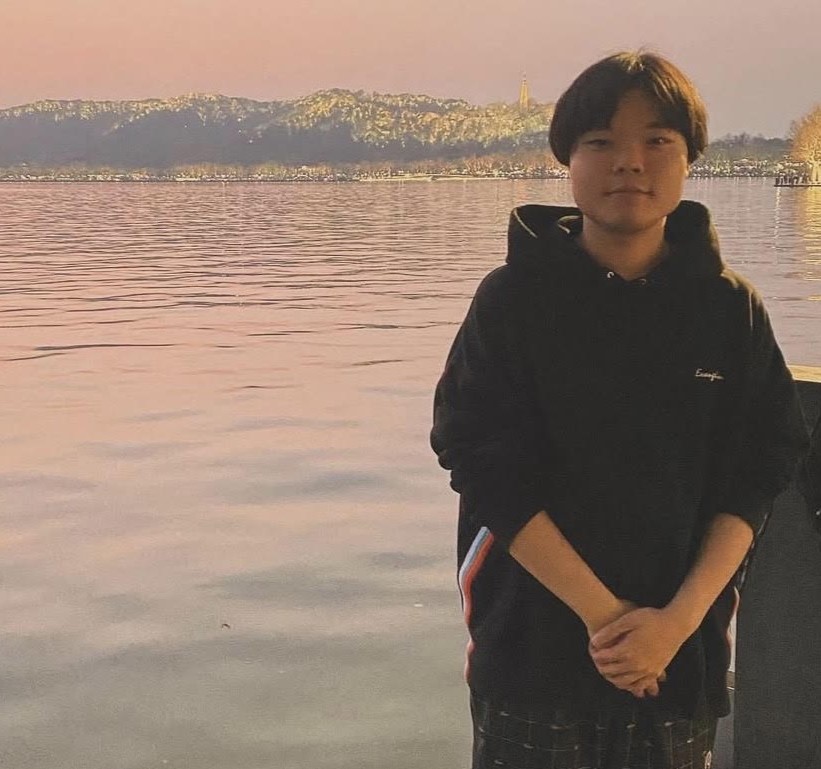-

TAKANO Yukako
My reason for joining the East Asian Academy for New Liberal Arts (EAA) is related to my field of study. I am currently a member of the Interdisciplinary Japanese Culture course, which is part of the Department of Humanities and Social Sciences, College of Arts and Sciences. This course offers a wide range of classes related to Japan without restrictions on time or location. As I studied Japanese culture through various classes, I gradually began to think, “What is Japan?” At that time, the EAA provided me with a place to look at Japan from a broader and more sophisticated point of view.
To me, the EAA is a place that opens up new perspectives. Living in Japan and taking courses in Japanese, it seems difficult to have a viewpoint outside the vague concept of “Japan” that surrounds me and to approach and understand it. However, the EAA offers a variety of programs that expand my viewpoints beyond an inward-looking view of “Japan.” These include classes offered in 3 different languages (Japanese, English, and Chinese), interaction with exchange students through tutoring activities, and overseas training programs. Whenever I participate in these activities, I feel that my sense of values is renewed, and a new landscape opens up before my eyes. The most recent experience that comes to mind is the trip to Beijing in March 2025. During the five-day trip, I encountered landscapes of China that were culturally related to Japan but not homogeneous. Through this encounter, my unconscious concept of “Japan” was revealed and challenged.
At the EAA, you are encouraged to keep thinking. I feel that this activity constantly challenges and renews one’s sense of values. It is a challenging yet interesting activity. If you are interested, please join the activities of the EAA and experience the fun it offers. -

WAKABAYASHI Manabu
The East Asian Academy for New Liberal Arts (EAA) is a rare place of learning that provides opportunities to learn in various environments outside the classroom, which I greatly appreciate. At first glance, the name “East Asian Academy for New Liberal Arts” may seem traditional and even somewhat heavy. In reality, it is filled with freedom and practicality. I strongly believe that this high degree of flexibility and hands-on learning is deeply connected to the essence of the “new liberal arts” that EAA aims to cultivate. There is a kind of learning here that cannot be obtained through one-way lectures alone.
I would like to highlight three experiences as examples of such learning: the mandatory East Asian Liberal Arts Seminar, occasional field trips, and the exchange program at Yuanpei College of Peking University.
First, regarding the East Asian Liberal Arts Seminar, one of its features is the multilingual discussions conducted by students in Japanese, English, and Chinese. Another noteworthy aspect is the abundance of opportunities for field-based learning. In the past summer semester, we visited and investigated the issues surrounding the former Toyotama Prison site and explored public restrooms in Tokyo to deepen our understanding of the Tokyo Toilet Project. Additionally, we visited Professor Ako’s home, practiced the traditional sliding foot movement (suri-ashi), and engaged in other activities. Sometimes, fieldwork is announced on the day itself, which can be slightly bewildering. However, the flexibility and learning opportunities beyond the traditional classroom setting make this experience all the more appealing.
Second, EAA occasionally organizes field trips. In June of last year, I participated in a trip focused on Japan’s modernization, visiting the Tomioka Silk Mill and the Watarase Retarding Basin. While these sites are recognized for their historical significance in Japan’s modernization, people rarely have opportunities to visit them. I had never been there before, and I arrogantly assumed that, given my understanding of the bright and dark sides of Japan’s modernization, I wouldn’t gain much from the visit. However, standing before memorial monuments such as the Yanaka Village Joint Memorial left a profound impact on me. Experiencing the weight of these forgotten and fading tragedies firsthand made me reflect deeply, making it an incredibly valuable learning experience. It was a moment when I truly understood the meaning of the saying, “Seeing is believing.”
Lastly, EAA offers students the opportunity to study abroad at Yuanpei College of Peking University for a duration of up to one academic year. Although there are many exchange programs available for studying at Peking University, including our university’s USTEP program, EAA is the only program in Japan that allows students to study at Yuanpei College, which attracts some of the brightest students at Peking University. During the exchange program, students live in a four-person dormitory with Yuanpei College students. I also participated in this program last semester, and I strongly felt that living together is the most practical and effective way to understand a different culture. Many lectures at Peking University are still conducted using only chalkboards, prompting me to reflect on the differences between this traditional style and the PowerPoint-based teaching methods that have become mainstream in Japan today.
In summary, EAA is characterized by its high level of flexibility and practicality. For those considering joining EAA, the biggest concern may be the challenge of using three languages—Japanese, English, and Chinese. However, there is no need to worry, as language proficiency is not the essence of this program. It is common for one student to express complex ideas in their native language while another student simultaneously translates them into English or Chinese. Rather than seeing language as a barrier, I strongly encourage you to step into EAA and experience it for yourself.






